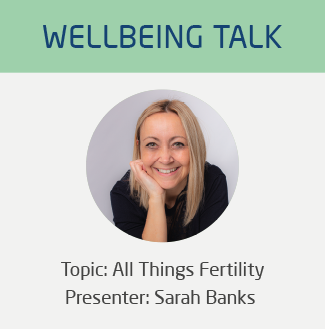Women's Month

Breast Cancer
October is Breast Cancer Awareness Month when people all over the world show their support for those affected. There are around 55,0000 new breast cancer cases in the UK every year, with women over the age of 50 affected the most. It's the most common cancer in the UK and accounts for 15% of all new cancer cases. Men can also get breast cancer, but it's much rarer.
The understanding today, is that breast cancer is likely caused by a combination of genes, environment, and lifestyle. While only one in every seven women in the UK will go on to develop breast cancer at some point in their lifetime, the survival rate beyond ten years is now at 76%. As a society, we need to get this higher. In our industry, from 2021 - 2022 we've seen a 34% increase in terminal cancers as a whole.
Knowing your own breasts and checking them regularly for any unusual changes could save your life. Your GP will be able to advise on what to look out for and will be able to provide support if you're unsure. Macmillan Charity (link to this https://www.macmillan.org.uk/cancer-awareness/breast-cancer-awareness-month) has lots of useful information and diagrams about how to check your breasts and what signs to look out for. There are lots of treatments available for breast cancer, but it's important to spot the signs as quickly as possible.
Menopause
Menopause is something experienced by all women when their period stops due to lower hormone levels. It usually occurs between the ages of 45 - 55, but can happen earlier in some instances. There are a number of reasons that menopause can be triggered earlier, this could be because of surgery o remove ovaries or the uterus during chemotherapy, or it may be for a reason unknown. Every woman's experience of menopause is different from another and completely unique to them. Menopause also covers a wide range of symptoms that usually happen 12 months after the last period has stopped, but if a woman is Perimenopausal, then they will experience the symptoms whilst they are still menstruating. These symptoms range from hot flushes to brain fog, to mood swings. anxiety and an increase/loss of appetite to name a few and can cause a significant impact on your daily life, including relationships and work.
There are lots of things you can do to help with the symptoms, including medicines to help replace the missing hormones and help relieve your symptoms. Your GP will be able to provide you with more information and guidance and there's a lot of amazing resources out there such as: The Menopause Charity
Ovarian Cancer
Ovarian cancer, or cancer of the ovaries, is one of the most common types of cancer in women. The ovaries are a pair of small organs located low in the tummy that are connected to the womb and store a woman's supply of eggs. Ovarian cancer is when abnormal cells in the ovary begin to grow and divide in an uncontrolled way. This eventually causes a growth (tumour) to form. If it's not caught early, the cancer cells gradually grow into the surrounding tissues and will likely spread to other areas of the body. There are various different types of ovarian cancer. The type of ovarian cancer you have depends on the type of cell it starts in.
Any woman can get ovarian cancer, but your risk of developing it increases as you get older and is greatest in those aged 75-79. Your risk of developing ovarian cancer depends on many things, including age, genetics, lifestyle, and environmental factors. Research has shown that between 5 and 15% of ovarian cancers are caused by an inherited faulty gene so it's recommended that if there is a family history of cancer, then you have 3 times more risk than other women without it. If you're worried, your GP will be able to provide you with support and further information.
Women's mental health
As a whole, women tend to struggle with their mental health more than men, but, generally, women are more open about their feelings and find it easier to talk to people and there is less stigma around women looking after their mental health than men. According to the Mental Health Foundation, around one in five women have a common mental health problem, such as depression or anxiety and women are more likely to develop mental health problems than men, particularly due to hormone changes or certain life events.
This could be:
Menopause
Menopause affects women in different ways, but the big change in hormones can cause anxiety and low mood, and the changes experienced can be difficult to process. It can also put a strain on relationships and affect work. There are lots of treatments available, such as hormone replacement therapy (HRT) or talking therapy.
Perinatal depression
Having a baby is a significant change for a woman and causes a lot of stress physically and mentally, which can then trigger postnatal depression or antenatal depression. Some women don't recognise that this is what is happening and as a result, they can feel that they are bad mothers. There's help available, such as talking therapy or medication.
Remember, there are lots of things that can create poor mental health, especially for women and it's important to actively ty to look after it. Always speak to your doctor if you're struggling.



